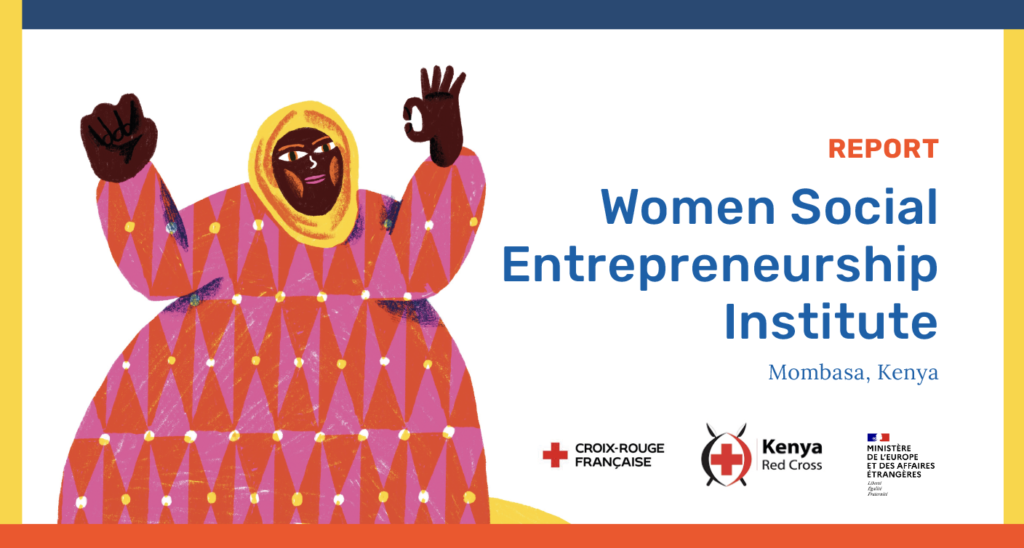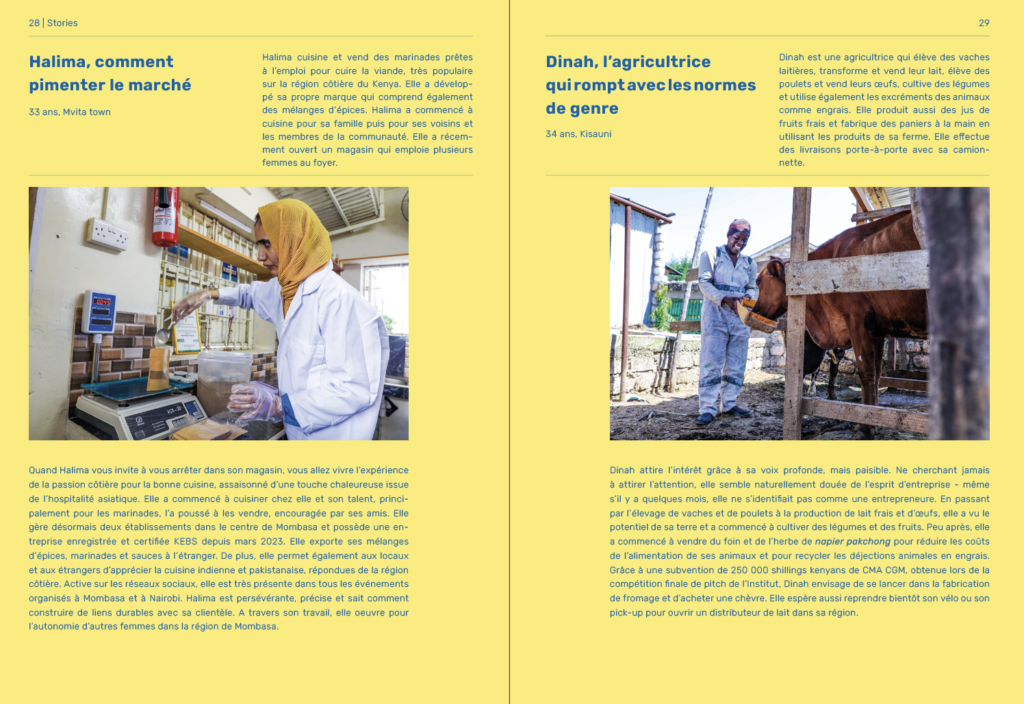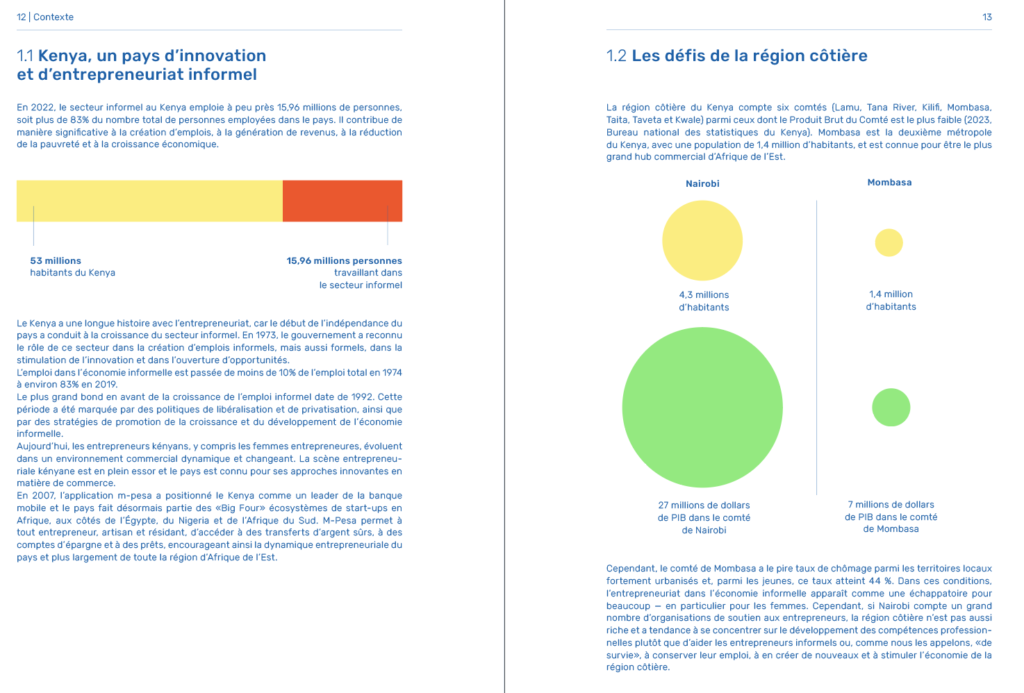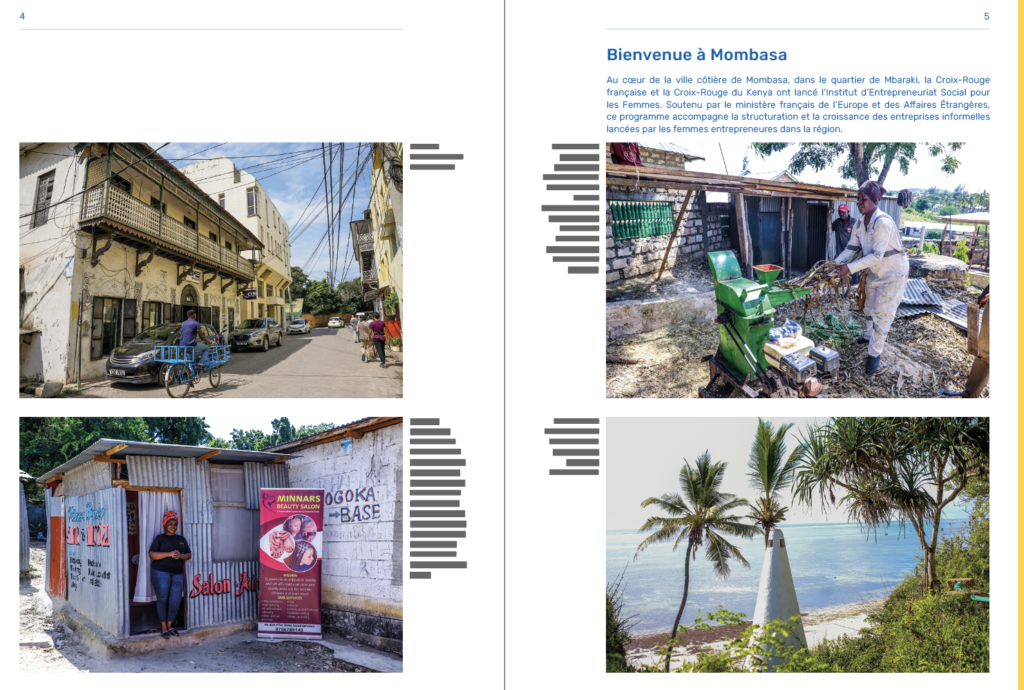
This report explores the Women Social Entrepreneurship Institute from its inception in 2021 until the end of the first cohort of 25 women supported throughout 2023. This initiative was conceived by the French Red Cross and the Kenya Red Cross, with the support of the French Ministry for Europe and Foreign Affairs, in order to support women entrepreneurs from Mombasa in their transition towards sustainable income generation and growing their human, social and economic resilience. As proved by the social impact measurement report, the ambition behind this first pilot project was also to reach a wider number
of women within the communities. On average, each woman who followed the WSEI programme supported and empowered 14 other women entrepreneurs.

How to support vulnerable communities via social entrepreneurship
Around the world, more than 1.3 billion people are still living in poverty, with the majority of them being women and children. The International Red Cross Red Crescent Movement is on the frontline of current crises, which are increasingly more complex, interlinked and dynamic. In times of war, it protects civilian persons, provides essential services, reconnects families and sometimes acts as an intermediary among belligerents. In times of peace, it addresses the causes, risks and consequences of violence, discrimination and exclusion, building the population’s resilience and capacity to act. From disease surveillance to earthquake shelters, local humanitarian actors represent a bridge between authorities and communities. They have both a global and local impact, and the ability to influence political decisions.

On the other hand, social entrepreneurship approaches can be a powerful ally when it comes to supporting vulnerable communities. Informal sector business owners are young, have limited formal education, and are primary breadwinners for their households (World Bank, 2022).
Through the acquisition of new human, economic and social skills, small-scale entrepreneurs can grow their businesses and ultimately become leaders in their communities. Complementary to the traditional work of the Red Cross, entrepreneurship support programmes are new tools to improve the livelihoods of people, in regions where the economic opportunities are low.
In that sense, stronger and more frequent collaborations between social entrepreneurship actors and international non-governmental organisations would participate in a more inclusive, locally-led and efficient action. It is an opportunity to shift the South-North power norms, support revenue-generating activities for the populations, and promote more equal humanitarian partnerships.
Today, one of the key ambitions for innovating in the humanitarian sector is therefore to ensure that projects are co-created with the local, affected communities for which the project is intended – triggering a paradigm shift, from a top-down “recipients of services” to a bottom-up “active participants” view on leveraging solutions to humanitarian problems.

One woman, one community
Adopting an approach inspired from social entrepreneurship is all the more relevant when
it comes to tackling gender inequality. Africa leads the world in terms of numbers of women business owners. In fact, women in Africa are more likely than men to be entrepreneurs. Women make up 58% of the continent’s self-employed population and yet, women entrepreneurs across sub-Saharan Africa continue to earn lower profits than men (34 % less on average).


